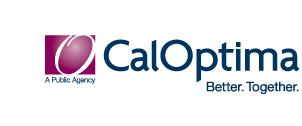PERSONALIZED SERIVCE
Exceptional Home Care is committed to providing our clients with superior health-care services that demonstrate the highest level of respect in which we promote your indepence.
Exceptional Homecare is licensed by the State of California; we are Medi-Cal, CCS and Cal-Optima Certified. We are vendored with LA Care Managed Care, CHOC Health Alliance Managed, Orange County, Harbor, South Central, East LA, Lanterman and San Gabriel Pomona Regional Centers. Exceptional Homecare is also vendored with private insurances such as Blue Cross/Blue Shield HMO/PPO and Aetna HMO/PPO. We handle Medi-Cal applications for those who qualify for the process; as well as Medi-Cal transfers from other home health agencies.
We are contracted with Prospect Medical Group Managed Care, Cap Management Systems (MedPoint Management) Managed Care, Monarch Health Care Managed Care, Talbert Medical Group, St. Joseph Heritage Medical Group and St. Joseph Heritage Healthcare.

SKILLED NURSING
Skilled nursing is a term that refers to a patient’s need for care or treatment that can only be done by licensed nurses. Examples of skilled nursing include but are not limited to; complex wound dressings, assisting with rehabilitation, G-Tube or G-J Tube feedings, tracheostomy care, ventilator observation and monitoring, administration of medication orally or through G-Tube, monitoring and administration of oxygen, observing and able to rapidly recognize the changing health status of the patient and render appropriate care.
SENIOR CARE
G-TUBE CARE/FEEDING
A gastric feeding tube (G-tube or “button”) is a tube inserted through a small incision in the abdomen into the stomach and is used for long-term enteral nutrition. One type is the percutaneous endoscopic gastrostomy (PEG) tube which is placed endoscopically.
A feeding tube is a medical device used to provide nutrition to patients who cannot obtain nutrition by mouth, are unable to swallow safely, or need nutritional supplementationG-J Tube is:
A gastrostomy-jejunostomy tube –– commonly abbreviated as “G-J tube” — is placed into your child’s stomach and small intestine. This tube is used to vent your child’s stomach for air or drainage, and / or to give your child an alternate way for feeding. You will use the J-tube to feed your child.
A G-J tube is a single tube that passes through the abdominal surface, into the stomach and down into the second part of the small intestine. The tube stays in your child’s stomach because there is a balloon inflated inside the stomach to help “hold” it in place.
TRACH CARE
A tracheostomy is usually done for one of three reasons: to bypass an obstructed upper airway; to clean and remove secretions from the airway; to more easily, and usually more safely, deliver oxygen to the lungs. Depending on the person’s condition, the tracheostomy may be temporary or permanent.
VENTILATOR
A medical ventilator is a machine designed to move breathable air into and out of the lungs. It is used to provide breathing for a patient who is physically unable to breathe, or breathing insufficiently.
Patients are usually placed on a ventilator because of a medical problem that makes it hard for them to breathe well on their own. While on the ventilator, the body is able to rest so that it can heal. The ventilator can help with breathing or totally breathe for the patient.
MEDICAL SUPPLIES
* All Medical Supplies must be approved by the patients primary care physician. The Physician must submit an authorization or referral to a durable medical equipment company that is approved by the patient’s insurance carrier in order for the patient to receive appropriate supplies to his/her home.
24 HOURS RN AVAILABILITY
BILLING / INSURANCE SERVICES
FOLEY, SUPRAPUBIC CATHETER CARE
Urinary catheters are used to drain the bladder. Your physician may recommend that you use a catheter if you have: Urinary incontinence (leaking urine or being unable to control when you urinate) Urinary retention (being unable to empty your bladder when you need to.
In urology, a Foley catheter is a flexible tube which a clinician passes through the urethra and into the bladder to drain urine. It is the most common type of indwelling urinary catheter.
A suprapubic cystostomy or suprapubic catheter is a surgically created connection between the urinary bladder and the skin used to drain urine from the bladder in individuals with obstruction of normal urinary flow.
HOME MEDICAL EQUIPMENT
* All Medical equipment must be approved by the patients primary care physician. The Physician must submit an authorization or referral to a durable medical equipment company that is approved by the patients insurance carrier in order for the patient to receive appropriate supplies/ equipment to his/her home.
MEDICATION ADMINISTRATION
OT, PT, ST, MSW, NUTRITION COUNSELING
*our agency is able to refer you to your local regional center and we can recommend your primary physician submit prior authorization or referrals to ensure patients receive a proper assessment and evaluation for any of the following programs:
Occupation Therapy:
Occupational therapy (OT) treatment focuses on helping people with a physical, sensory, or cognitive disability be as independent as possible in all areas of their lives. OT can help kids/ adults with various needs improve their cognitive, physical, sensory, and motor skills and enhance their self-esteem and sense of accomplishment.
Physical Therapy:
Physical therapy (PT) is care that aims to ease pain and help you function, move, and live better. Physical therapy can teach patients how to prevent or manage their condition so that they will achieve long-term health benefits. PTs examine each individual and develop a plan, using treatment techniques to promote the ability to move, reduce pain, restore function, and prevent disability.
Speech Therapy:
assess speech, language, cognitive–communication, and oral/feeding/swallowing skills to identify types of communication problems (articulation; fluency; voice; receptive and expressive language disorders, etc.) and the best way to treat them.
Medical Social Worker:
Social workers provide patient education on treatment options and help coordinate services needed after discharge, such as medical equipment. Medical social workers also arrange grief counseling or other mental health services for patients
Medical social workers address the emotional, social and financial needs that frequently accompany health care issues. They serve as case managers, counselors and advocates, providing patients and families with the nonmedical support needed to deal with acute, chronic and terminal conditions. Medical social workers also provide referrals to health care resources and help locate financial and legal assistance in the community.
Nutrition Counseling:
Nutritional counseling is a type of assessment made which analyzes various health needs in regard to diet and exercise. A nutritional counselor helps people to set achievable health goals and teaches various ways of maintaining these goals throughout their lifetime.
ADDITIONAL LINKS




